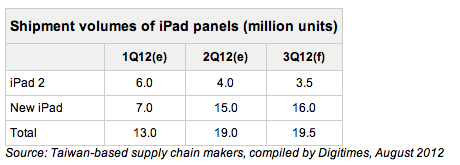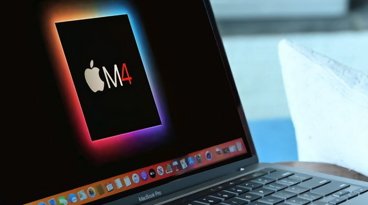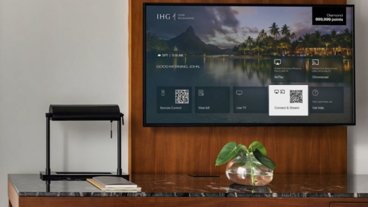Apple reportedly shifting iPad panel orders from Samsung to Sharp, LG
The report, published by Digitimes, arrives from a source with a mixed record when it comes to future product predictions. It suggests Apple "is revising the new iPad and plans to launch a new version of iPad," a claim which is not well supported.
However, the Taiwanese site often fares better when simply reporting on component shipments, and in that regard the site claims that iPad panel shipments will fluctuate during the quarter ending in September, but edge slightly higher than the previous June quarter, raising deliveries from 19 million to 19.5 million panels. Apple sold a record setting 17 million iPads in the June quarter.
The site reported supply chain component sources as reporting that Apple would be "decreasing the proportion of total shipments of iPad panels from Samsung Electronics and increasing those from Sharp and LG Display."
The move away from Samsung isn't necessarily just in retaliation to the company's refusal to negotiate patent claims (as other industry rivals have, including Nokia). The site claims that Apple is also working to move away from a-Si TFT screens to use more oxide TFT panels for the iPad, and notes "Apple will increase use of oxide TFT panels shipped by Sharp for the new iPad."
At the same time, Apple has reportedly worked to expand its relationship with Taiwan Semiconductor Manufacturing Company (TSMC) in a bid to reduce its dependence upon Samsung for ARM CPUs, and Apple has scouted out RAM from alternative suppliers as well.
Frenemies like these
Samsung remains a critical component supplier for Apple, joining the company's list of "frenemies" that it both partners closely with and competes vigorously against, including Microsoft and Google.
Apple has notably pitted its frenemies against each other, such as in partnering with Google to develop and popularize the WebKit browser at the expense of Microsoft's dominant share with Internet Explorer, and conversely in publicly partnering with Microsoft's Bing as an alternative option to Google web search in Safari.
Apple has also rolled its own alternatives to the to products it once depended upon various frenemies to provide, including the development of iWork and Safari to counter Microsoft's less than enthusiastic support of the Macintosh versions of Office and Internet Explorer, and its internal development of Siri and new iOS 6 Maps to bolster its competitive position against Google's Android platform.
 Daniel Eran Dilger
Daniel Eran Dilger











 Malcolm Owen
Malcolm Owen
 William Gallagher and Mike Wuerthele
William Gallagher and Mike Wuerthele
 Christine McKee
Christine McKee
 William Gallagher
William Gallagher

 Marko Zivkovic
Marko Zivkovic









